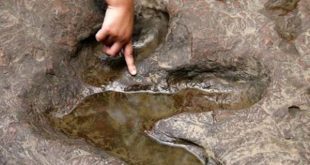 On the territory of historical-arheologicheskogo of the Museum-reserve “Phanagoria” in Russia discovered a complex of defensive structures VI-V centuries BC.
On the territory of historical-arheologicheskogo of the Museum-reserve “Phanagoria” in Russia discovered a complex of defensive structures VI-V centuries BC.
A large complex of fortifications, was built approximately in VI-V centuries BC, have been discovered by archaeologists on the territory of historical-arheologicheskogo of the Museum-reserve “Fanagoria”, located on the Taman Peninsula in the Krasnodar region, reported the Ministry of culture.
“Building, built on the edge of the hill, have unusually thick walls (over one meter thick) and located relative to each other in a staggered manner”, — explained in Department.
According to the Director of the Museum-reserve of Vladimir Kuznetsov, “the uniqueness of the findings is that defensive structures are archaic and early classical periods are extremely rare not only in Pontic, but also in the Mediterranean — the city walls, as a rule, absent in the Greek cities until the sixth century BC inclusive. The Director is convinced that “the opening of the Phanagoria of the city’s fortifications, especially such an unusual design, is the most important event for the archaeology of the Mediterranean basin”.
In addition, the Ministry of culture added, was “a rare old Persian cuneiform”. It has been preserved fragmentarily, but as Kuznetsov stressed, “first, the cuneiform was a writing system used by the kings of Persia, and in the discovered inscription mentions the name of the legendary Persian king Darius I (550486 BC)”.
Second, the text is a word that can be read as Miletus, the largest Greek city in Ionia, modern Asia Minor)”. The Museum Director explains: given that “Miletus in the beginning of the V century BC was the centre of the Ionian revolt against the Hellenistic policies of Darius I, it can be assumed that the king after the victory over the Greeks set the city a marble stele with triumphant, a fragment of a destroyed stele hit (for example, as ballast on the ship) in Phanagoria”








